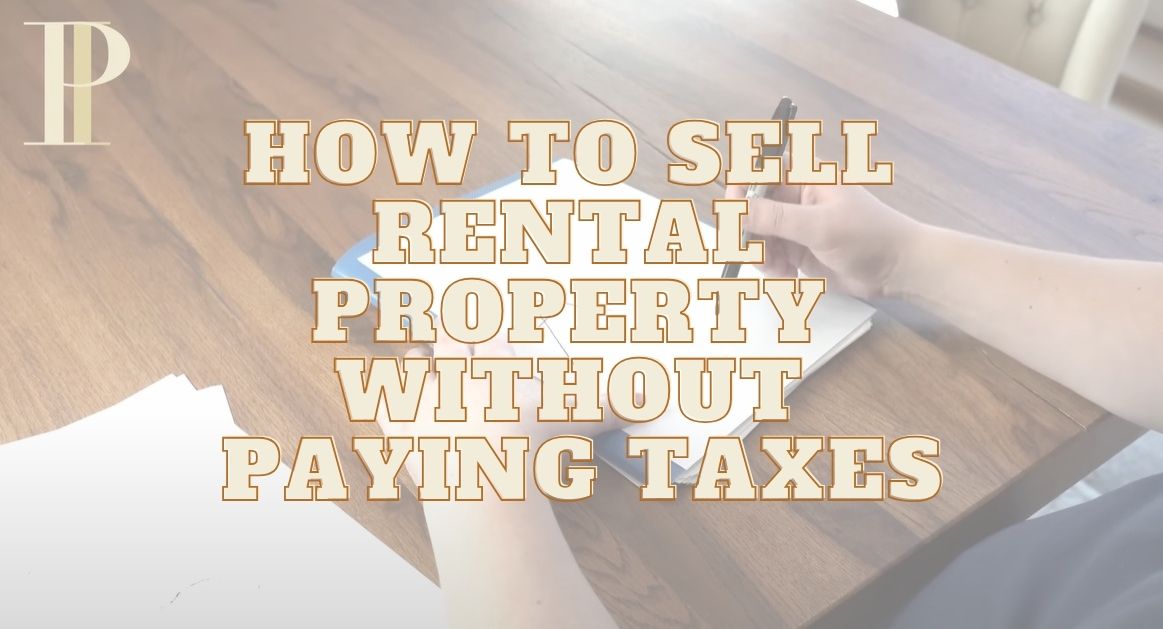Selling a rental property can be a significant financial event, often resulting in substantial capital gains. However, the tax implications of such a sale can be daunting. The good news is that there are several strategies you can employ to minimize or even eliminate your tax liability when selling a rental property. This article delves into various methods for avoiding capital gains tax, including the use of a 1031 exchange, converting your rental property into a primary residence, and leveraging tax loss harvesting. By understanding and applying these strategies, you can maximize your profits and keep more money in your pocket.
Understanding Capital Gains Tax
When you sell a rental property, the profit from the sale is subject to capital gains tax. The amount of tax you owe depends on how long you’ve owned the property and your income level. Here are the basics:
- Short-term capital gains apply if you have owned the property for less than a year, taxed at your ordinary income tax rate.
- Long-term capital gains apply if you have owned the property for more than a year, typically taxed at a lower rate, ranging from 0% to 20%, depending on your income level.

Strategies for Avoiding Capital Gains Tax on Rental Property
1031 Exchange
A 1031 exchange, also known as a like-kind exchange, allows you to defer paying capital gains tax on the sale of a rental property by reinvesting the proceeds into a similar property. This strategy is outlined in IRS Section 1031. To qualify:
- Identify potential replacement properties within 45 days of the sale.
- Complete the purchase of one or more of these properties within 180 days.
- Ensure the replacement property is of equal or greater value.
This method allows you to defer taxes indefinitely as long as you continue to reinvest in similar properties.
Converting Rental Property into a Primary Residence
Another effective strategy is to convert your rental property into your primary residence. Under IRS Section 121, you can exclude up to $250,000 ($500,000 if married filing jointly) of capital gains on the sale of your primary residence, provided you have lived in the property for at least two of the five years before the sale. This exclusion can significantly reduce your taxable gains.
Offsetting Gains with Losses (Tax Loss Harvesting)
Tax loss harvesting involves selling investments that have lost value to offset gains from other investments. This can be particularly useful if you have other investments, such as stocks, that are performing poorly. By strategically selling these investments, you can offset your rental property gains, reducing your overall tax liability.
Depreciation Recapture
Depreciation recapture is another consideration when selling a rental property. Depreciation deductions taken during the property’s ownership reduce your cost basis and increase your taxable gain upon sale. However, any depreciation recapture is taxed at a maximum rate of 25%, which is often lower than ordinary income tax rates.
Utilizing Installment Sales
An installment sale allows you to spread out the capital gains tax liability over several years by receiving payments over time instead of a lump sum. This can reduce your taxable income in any given year, potentially lowering your overall tax rate.
Selling Rental Property at a Loss
If the market value of your rental property has decreased, you might be able to sell at a loss. Although this isn’t an ideal scenario, it can provide some tax relief. Losses from the sale of rental property can offset capital gains from other investments up to $3,000 per year, with any excess carried forward to future tax years.
Read also: How To Sell Your House Without Your Neighbors Knowing
Primary Residence Exclusion
If you have lived in your rental property as your primary residence for at least two of the last five years, you can exclude a portion of the capital gains from your taxable income under IRS Section 121. This exclusion can be a significant tax advantage, especially for those who plan their move strategically.
Consulting a Tax Advisor
Given the complexity of tax laws and the significant financial implications, it’s wise to consult a tax advisor or a real estate investment professional. They can provide personalized advice and help you navigate the various strategies to minimize your tax liability.
Frequently Asked Questions
What is a 1031 exchange and how does it work?
A 1031 exchange, named after IRS Section 1031, allows real estate investors to defer paying capital gains tax on the sale of an investment property by reinvesting the proceeds into a similar property of equal or greater value. To execute a 1031 exchange, you must identify potential replacement properties within 45 days of selling your rental property and complete the purchase within 180 days. This strategy is beneficial for those looking to grow their real estate portfolio without the immediate burden of capital gains tax.
How can I convert my rental property into a primary residence to avoid taxes?
To convert your rental property into a primary residence and take advantage of the primary residence exclusion under IRS Section 121, you must live in the property as your main home for at least two of the five years before selling. This exclusion allows you to exclude up to $250,000 ($500,000 if married filing jointly) of capital gains from the sale. It’s important to establish your intent to make it your primary residence and comply with the occupancy requirements.
What is tax loss harvesting and how can it help reduce my taxes?
Tax loss harvesting is a strategy where you sell investments that have experienced a loss to offset the gains from other investments, including rental property sales. By realizing these losses, you can reduce your overall taxable income and potentially lower your tax liability. It’s essential to be aware of IRS rules regarding wash sales, which prohibit repurchasing the same or substantially identical investment within 30 days of the sale.
How does depreciation recapture affect the sale of my rental property?
Depreciation recapture occurs when the IRS taxes the gain from the sale of a rental property, accounting for the depreciation deductions taken during the property’s ownership. This recapture is taxed at a maximum rate of 25%, which can increase your taxable income upon the sale. Understanding how depreciation recapture works can help you plan for its impact and explore strategies to mitigate it.
Can I use an installment sale to defer capital gains tax?
Yes, an installment sale allows you to spread out the capital gains tax liability over several years by receiving payments over time instead of a lump sum. This can reduce your taxable income in any given year and potentially lower your overall tax rate. To utilize this strategy, you must meet the IRS requirements and report the sale using the installment method on your tax return.
Visitor Comments
- John Smith: “Selling my rental property was a daunting task, especially when considering the tax implications. I decided to use a 1031 exchange to defer the capital gains tax. The process was straightforward once I understood the timelines and requirements. By reinvesting in another rental property, I managed to defer a significant amount of taxes. This strategy not only saved me money but also allowed me to grow my real estate portfolio without the immediate tax burden.”
- Emily Johnson: “I had owned a rental property for several years and was worried about the capital gains tax when I decided to sell. A tax advisor suggested converting it into my primary residence. I lived in the property for over two years, which allowed me to exclude $250,000 of the capital gains from my taxes. This move saved me a considerable amount of money and made the sale much less stressful.”
- Michael Williams: “I found the concept of tax loss harvesting incredibly helpful when I sold my rental property. By selling some underperforming stocks, I was able to offset the gains from the property sale. This strategy reduced my overall tax liability significantly. It required careful planning and timing, but the benefits were well worth the effort.”
- Sarah Davis: “Depreciation recapture was something I hadn’t fully considered until I decided to sell my rental property. The accumulated depreciation over the years did increase my taxable income, but understanding this aspect helped me plan better. Consulting with a tax advisor helped me navigate through the complexities and mitigate some of the impact.”
- David Brown: “An installment sale was a game-changer for me. Instead of receiving the full payment upfront for my rental property, I structured the sale to receive payments over several years. This approach spread out the capital gains tax liability, lowering my taxable income each year and helping me manage my finances more effectively.”
- Linda Wilson: “When it came time to sell my rental property, I considered multiple options to minimize taxes. Using a self-directed IRA was a unique strategy that provided tax advantages. The rental income was tax-deferred, and it allowed me to reinvest in other properties within the IRA. Working with a knowledgeable financial advisor was crucial in maximizing the benefits and staying compliant with IRS regulations.”
Conclusion
Selling rental property without paying taxes involves strategic planning and a thorough understanding of tax laws. By leveraging strategies such as the 1031 exchange, converting your rental property into a primary residence, and utilizing tax loss harvesting, you can significantly reduce or defer your tax liability. Always consult with a tax advisor to ensure compliance with IRS regulations and to maximize your financial benefits.

Leave a Reply